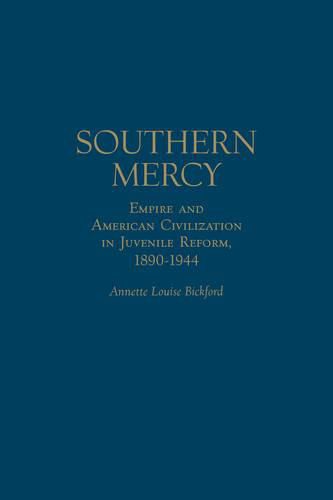Readings Newsletter
Become a Readings Member to make your shopping experience even easier.
Sign in or sign up for free!
You’re not far away from qualifying for FREE standard shipping within Australia
You’ve qualified for FREE standard shipping within Australia
The cart is loading…






From the late-nineteenth to mid-twentieth century juvenile reformatories served as citizen-building institutions and a political tool of state racism in post-emancipation America. New South advocates cemented their regional affiliation by using these reformatories to showcase mercies which were racialized, gendered, and linked to sexuality.
Southern Mercy
uses four historical examples of juvenile reformatories in North Carolina to explore how spectacles of mercy have influenced Southern modernity. Working through archival material pertaining to race and moral uplift, including rare photos from the private archives of Samarcand Manor (the State Home and Industrial Manor for Girls) and restricted archival records of reformatory racial policies, Annette Bickford examines the limits of emancipation, and the exclusions inherent in liberal humanism that distinguish racism in the contemporary post-race era.
$9.00 standard shipping within Australia
FREE standard shipping within Australia for orders over $100.00
Express & International shipping calculated at checkout
From the late-nineteenth to mid-twentieth century juvenile reformatories served as citizen-building institutions and a political tool of state racism in post-emancipation America. New South advocates cemented their regional affiliation by using these reformatories to showcase mercies which were racialized, gendered, and linked to sexuality.
Southern Mercy
uses four historical examples of juvenile reformatories in North Carolina to explore how spectacles of mercy have influenced Southern modernity. Working through archival material pertaining to race and moral uplift, including rare photos from the private archives of Samarcand Manor (the State Home and Industrial Manor for Girls) and restricted archival records of reformatory racial policies, Annette Bickford examines the limits of emancipation, and the exclusions inherent in liberal humanism that distinguish racism in the contemporary post-race era.